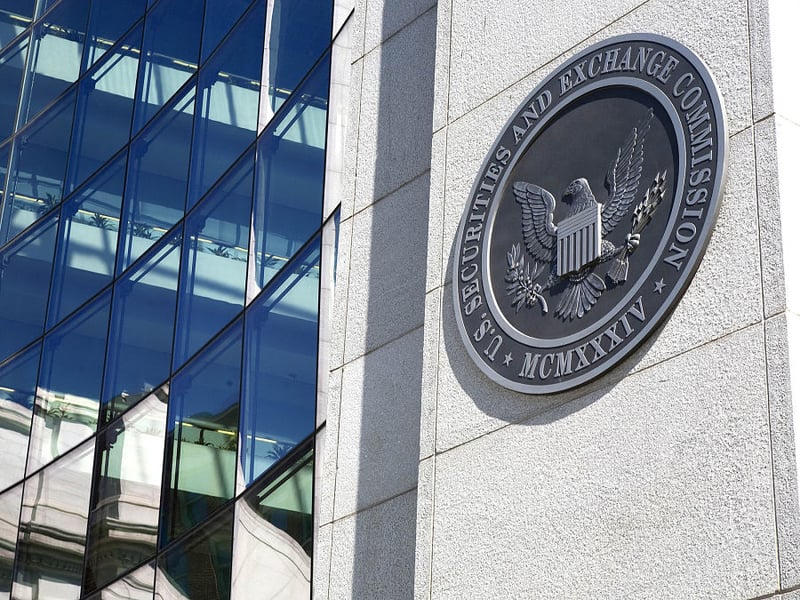

Financial industry opponents of a Securities and Exchange Commission effort to target disclosure failures surrounding high-fee mutual funds remain wary of future enforcement despite the formal end of the program.
The SEC concluded its Share Class Selection Disclosure Initiative on Friday with final orders, including one involving Merrill Lynch. Under the program, launched in February 2018, advisory firms were given an opportunity to report themselves and avoid civil penalties, although they still had to pay investor restitution.
The SEC said it returned more than $139 million to investors as part of the initiative.
The initiative focused on advisory firms that recommended high-fee mutual funds — those that charged 12b-1 fees kept by the firms — without telling clients that less expensive share classes were available in the same funds. The problems usually involved brokerage affiliates of the advisers.
The initiative drew sharp criticism from the brokerage industry, which asserted that the SEC was conducting “regulation by enforcement” because it never explained its disclosure expectations before starting the crackdown.
Although the initiative has concluded, opponents are still wary of what may be coming next. The SEC has made share-class disclosure an examination priority this year.
A former SEC commissioner who has criticized the share-class initiative isn’t breathing a sigh of relief now that it’s over.
“The SEC conducted a campaign of regulation through enforcement that leaves more questions than it answers,” Paul Atkins, chief executive of Patomak Global Partners, said in a statement. “The Commission lost a lot of credibility by browbeating advisors through make-it-up-as-you-go disclosure requirements and never-before-enunciated duties imposed on an entire industry.”
David Bellaire, executive vice president and general counsel at the Financial Services Institute, said the SEC is still talking to its members who participated in the initiative about further disclosure concerns but is not providing information they need to comply.
“They don’t know when it ends, and they still don’t know what the SEC is looking for in terms of disclosures and pricing structure,” said Bellaire, whose organization represents independent broker-dealers and financial advisers.
Christopher Iacovella, chief executive of the American Securities Association, also is not easing up on the SEC.
He said the group’s regional financial service companies are willing to comply with rules. But in the share-class initiative “they were made up on the fly” or were drawn from past enforcement cases.
“They set a precedent that is extremely dangerous with regulation by enforcement,” Iacovella said. “We’re worried that they’re going to expand this initiative.”
An SEC spokesperson was not immediately available for comment.
The SEC received applause from an investor advocate, who said the initiative woke up the industry when it comes to recommending expensive share-classes when those that don’t charge 12b1-fees are available.
“It demonstrates the SEC is going to put Main Street ahead of Wall Street,” said Niels Holch, executive director of the Coalition of Mutual Fund Investors. “It certainly sends a strong signal about how the SEC views this issue. Now, the industry is going to be much more careful about monitoring share-class changes.”
There’s speculation that the SEC may dig into revenue sharing next.
But before it makes another move, the agency should set a clear framework for what it is seeking in terms of pricing structure and revenue streams, according to Bellaire.
“We’re calling on the SEC to commence a rulemaking to provide clarity to firms,” Bellaire said.
It’s not so much regulatory mandates as market demands to which firms should be reacting, said Holch. Investors are signaling a preference for inexpensive index funds and exchange traded funds.
“People are paying attention to cost, and the industry has to adjust to that,” Holch said.

Summit Financial unveiled a suite of eight new tools, including AI lead gen and digital marketing software, while MassMutual forges a new partnership with Orion.

A new analysis shows the number of actions plummeting over a six-month period, potentially due to changing priorities and staffing reductions at the agency.

The strategic merger of equals with the $27 billion RIA firm in Los Angeles marks what could be the largest unification of the summer 2025 M&A season.

Report highlights lack of options for those faced with emergency expenses.

However, Raymond James has had success recruiting Commonwealth advisors.
Orion's Tom Wilson on delivering coordinated, high-touch service in a world where returns alone no longer set you apart.
Barely a decade old, registered index-linked annuities have quickly surged in popularity, thanks to their unique blend of protection and growth potential—an appealing option for investors looking to chart a steadier course through today's choppy market waters, says Myles Lambert, Brighthouse Financial.
